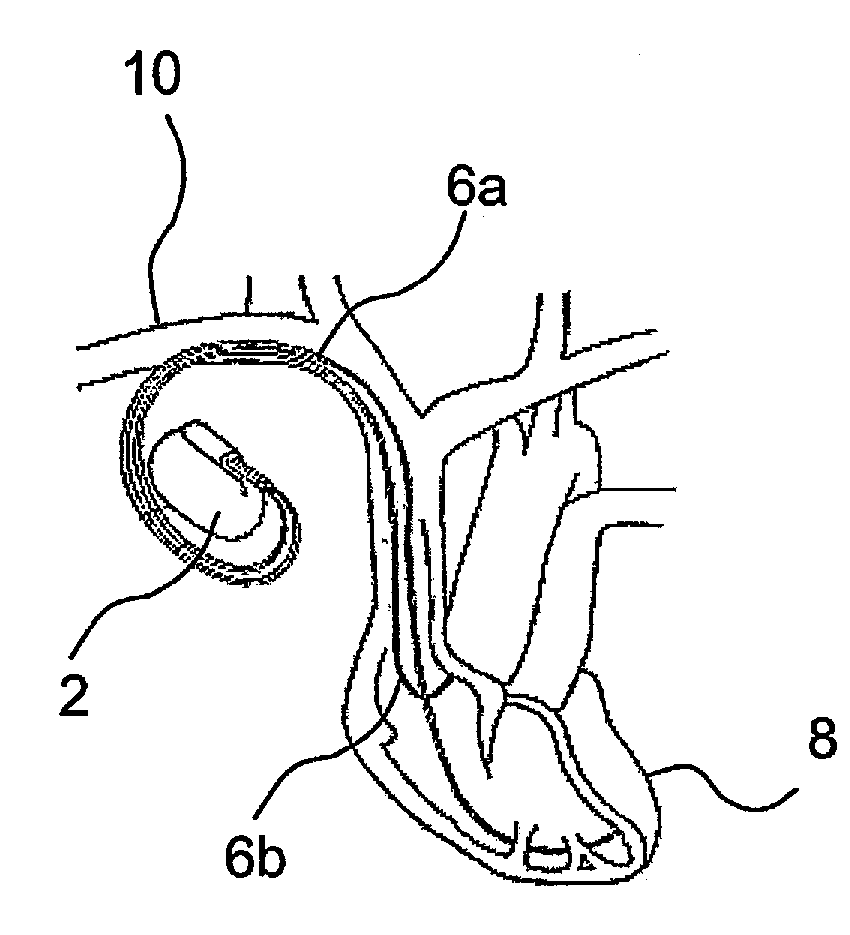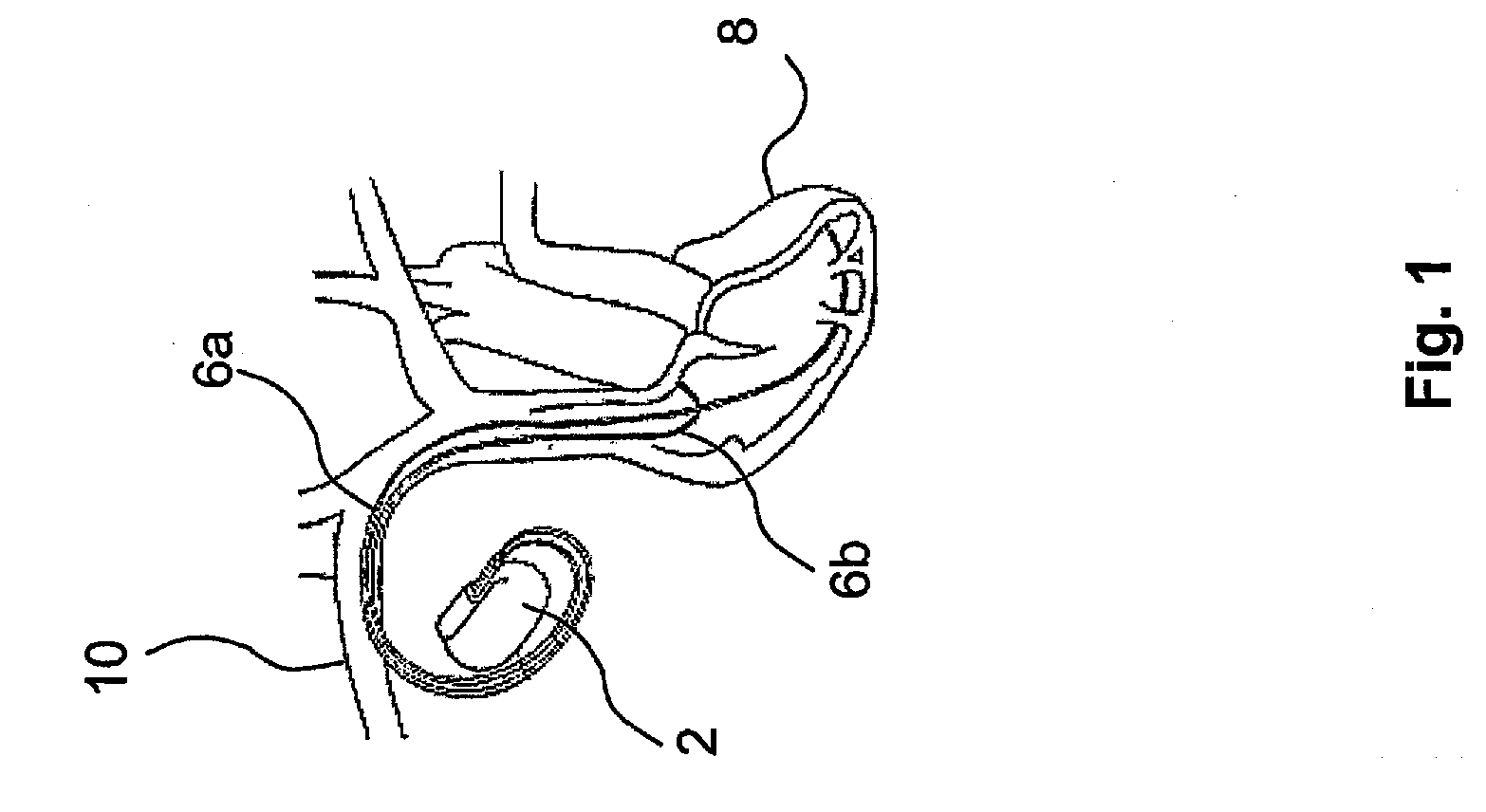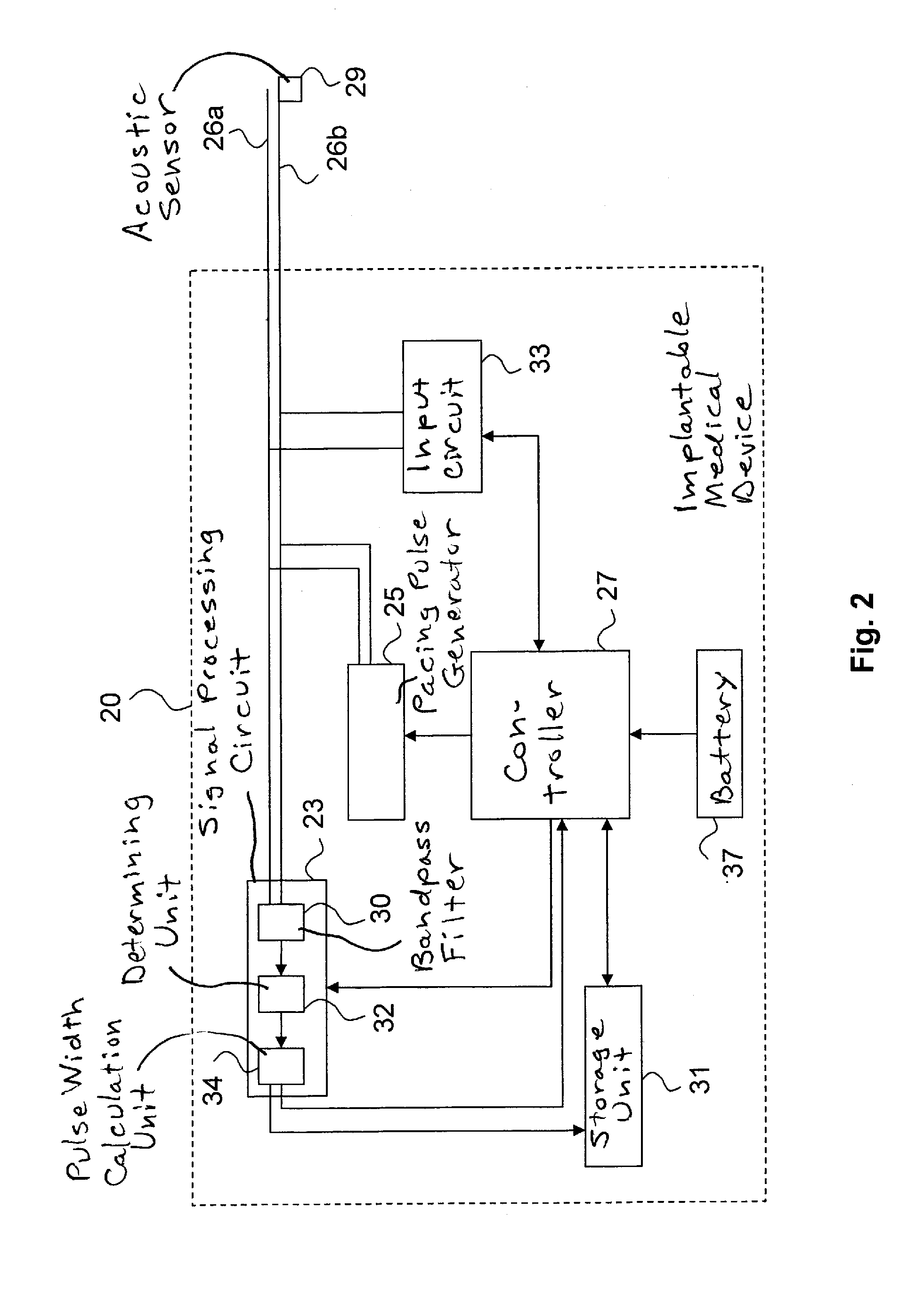Implantable Medical Device with Therapy Control
a technology of medical devices and control devices, applied in the field of implantable medical devices, can solve the problems of inexact heart sounds, cumbersome and time-consuming to obtain knowledge, and the inability to disclose a method for controlling the stimulation therapy, so as to improve the accuracy and reliability of optimization procedures, and improve the effect of accuracy and reliability
- Summary
- Abstract
- Description
- Claims
- Application Information
AI Technical Summary
Benefits of technology
Problems solved by technology
Method used
Image
Examples
Embodiment Construction
[0044]With reference to FIG. 1, there is shown a schematic diagram of a medical device implanted in a patient in which device the present invention can be implemented. As seen, this embodiment of the present invention is shown in the context of a pacemaker 2 implanted in a patient (not shown). The pacemaker 2 comprises a housing being hermetically sealed and biologically inert. Normally, the housing is conductive and may, thus, serve as an electrode. The pacemaker 2 is connectable to one or more pacemaker leads, where only two are shown in FIG. 1 namely a ventricular lead 6a and an atrial lead 6b. The leads 6a and 6b can be electrically coupled to the pacemaker 2 in a conventional manner. The leads 6a, 6b extend into the heart 8 via a vein 10 of the patient. One or more conductive electrodes for receiving electrical cardiac signals and / or for delivering electrical pacing to the heart 8 are arranged near the distal ends of the leads 6a, 6b. As the skilled man in the art realizes, the...
PUM
 Login to View More
Login to View More Abstract
Description
Claims
Application Information
 Login to View More
Login to View More - R&D
- Intellectual Property
- Life Sciences
- Materials
- Tech Scout
- Unparalleled Data Quality
- Higher Quality Content
- 60% Fewer Hallucinations
Browse by: Latest US Patents, China's latest patents, Technical Efficacy Thesaurus, Application Domain, Technology Topic, Popular Technical Reports.
© 2025 PatSnap. All rights reserved.Legal|Privacy policy|Modern Slavery Act Transparency Statement|Sitemap|About US| Contact US: help@patsnap.com



